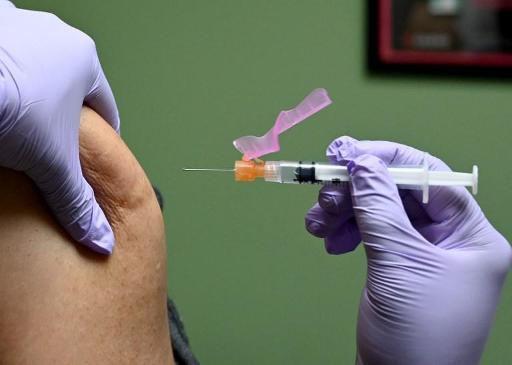WHO released this week its third strategic plan for COVID-19 since the start of the coronavirus crisis with three possible scenarios for how the pandemic could evolve this year.
Some countries have declared that the crisis has been stabilized and started to relax restrictive measures despite a new spike in infections in March.
But more than two years since the first COVID-19 infections were reported, the pandemic remains an acute global emergency, according to WHO. The emergence and rapid spread of the Omicron variant towards the end of 2021 precipitated an acceleration of transmission worldwide, at an intensity the world had not yet seen.
By the end of March 2022, more than 6 million deaths from COVID-19 were reported, a figure that is almost certainly an underestimate. The total number of cumulative cases until now is 480 million. More than 143 million new cases were reported globally in the first two months of 2022 alone. The pandemic is not over, although COVID-19 is now affecting countries in very different ways.
The updated Strategic Preparedness, Readiness and Response Plan for COVID-19 lays out three scenarios: a base case, best case and worst-case planning scenario.
“Based on what we know now, the most likely scenario is that the virus continues to evolve, but the severity of disease it causes reduces over time as immunity increases due to vaccination and infection,” said the WHO Director-General Tedros Adhanom Ghebreyesus on Wednesday (30 March).
However, periodic spikes in transmission may occur as a result of an increasing proportion of susceptible individuals over time if waning immunity is significant, which may require periodic boosting at least for high-priority populations; a seasonal pattern of peaks in transmission in temperate zones may emerge.
The need for repeated boosters appears still to be unsettled. In e.g. Israel, which launched a campaign for a forth vaccine dose when the Omicron variant started to spread, fewer people agreed to it compared to the third dose. Recent studies show that the fourth dose significantly reduced the risk of dying from COVID-19 and is more effective than three doses but that its protection also dissipates over time.
In the best-case scenario, we may see less severe variants emerge, and boosters or new formulations of vaccines won’t be necessary.
In the worst-case scenario, a more virulent and highly transmissible variant emerges against which vaccines are less effective, and/or immunity against severe disease and death wanes rapidly, especially in the most vulnerable groups. This would require significant alterations to current vaccines and full redeployment and/or broader boosting of all high-priority groups.
Dr Tedros said that countries need to invest in five core components to move forward and end the acute phase of the pandemic this year
First, surveillance, laboratories, and public health intelligence;
Second, vaccination, public health and social measures, and engaged communities;
Third, clinical care for COVID-19, and resilient health systems;
Fourth, research and development, and equitable access to tools and supplies;
And fifth, coordination, as the response transitions from an emergency mode to long-term respiratory disease management.
He repeated previous messages that equitable vaccination remains the single most powerful tool we have to save lives. “Striving to vaccinate 70% of the population of every country remains essential for bringing the pandemic under control, with priority given to health workers, older people and other at-risk groups.”
He was surprised that there are some in the global health community who see the 70% target as no longer relevant.
“Many high- and middle-income countries have reached this target, and have seen a decoupling between cases and deaths. Even as some high-income countries now roll out fourth doses for their populations, one third of the world’s population is yet to receive a single dose, including 83% of the population of Africa. This is not acceptable to me, and it should not be acceptable to anyone.”
Dr Tedros reminded also that attacks on health care facilities in Ukraine are continuing. Since the beginning of Russia’ invasion, there have been 82 attacks on health care, resulting in at least 72 deaths and 43 injuries, including patients and health workers.
“Attacks on health care are a violation of international humanitarian law, and must stop immediately.”
The Brussels Times

